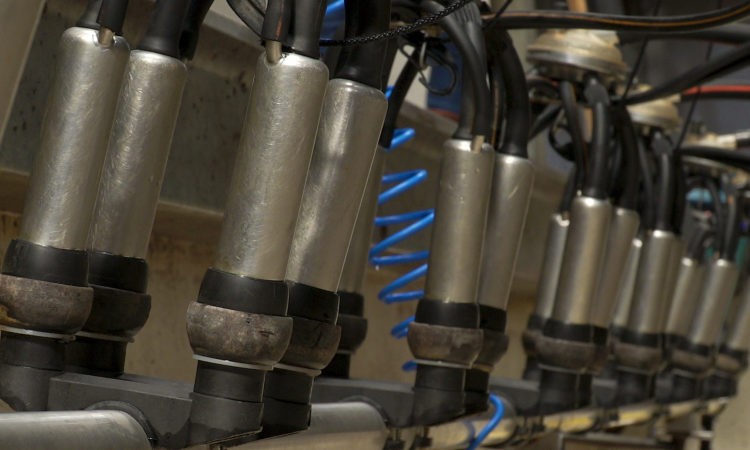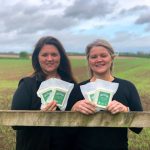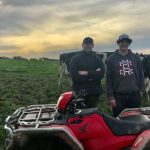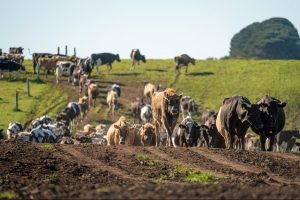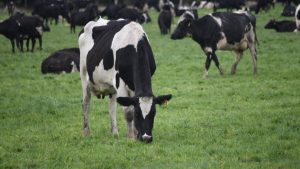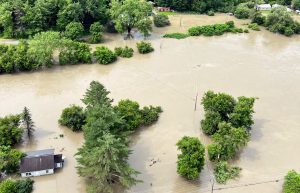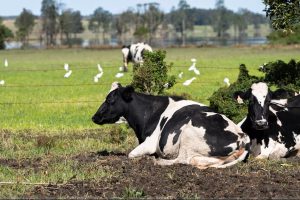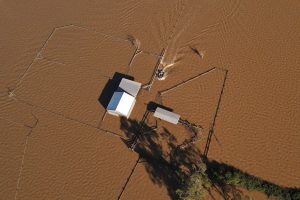
The family, parents Geoff and Tracey along with sons Michael, 29, and Matt, 35, who farm just outside Barham in NSW, are on its second year of zero allocation and it is decimating a once thriving business.
“We have a pretty good dairy set up and we are just watching it dwindle away to dust,” Matt said.
He said the family has tried to make things work with minimal water and for the last two years a zero allocation.
“Everything we are feeding the herd has been bought in and we can no longer be self-sufficient for feed which was a key part of our original business management,” Matt said.
Matt said with irrigation the family had been able to grow a large percentage of its own fodder and establish a sustainable feed rotation which consisted of grazing lucerne over summer and feeding conserved home-grown corn silage over winter.
“We were able to cut corn for silage in 2019 but we have none this year,” he said.
“Our lucerne is hanging in there but it wouldn’t have been irrigated for at least 12 months and everywhere we look there are dry and dusty paddocks,” he said.
The family milk 480 cows on 445 ha — 80 per cent is irrigatable and the herd can graze around 220ha.
Matt said government and politicians, poor water policy and the effects of the Murray-Darling Basin Plan are simply killing the area.
“It is just so frustrating, and the problem is a lot bigger than just needing rain, we need policy change and we need it now. We can’t produce dairy unless we have some sort of water allocation, we continually point out why it’s not working, and it continually falls on deaf ears.
“We can’t adapt without water and we are told to be more efficient, but we can’t do that with both hands tied behind our back.”
Matt said while milk price was good, it was certainly not good enough to make up for the high cost of inputs.
“It has been draining and mentally tough for our family, especially Mum and Dad who have had to keep increasing their debt level to stay in.
“It really takes it out of you, and we have had some horrible days where we have gone home at the end of the day pretty upset.”
The Searles recently sold 70 heifer calves to help with cash flow but even that has been a double-edged sword, because they know this will affect breeding stock numbers in the future.
Cows are now calved three times a year to help with milk flow and last joining they used the beef bulls to mop up the herd, something they have never done before.
“We are tired from all the mental stress and worry that seems to be never ending. There used to be four dairy farms along this road and now we are the only ones left.”
Matt said the cows are fed a mix of vetch, cereal hay, barley and canola.
“We have been able to maintain a consistent level of milk, but the really hot days did knock the cows around, and they didn’t want to eat anything.
“Every day we are feeding cows with fodder we could have grown ourselves instead we have to pay for it. There is dust continually blowing in our faces and it can be a long day driving around a desolate farm stuck inside your own head.”
Matt said it was also depressing to look around the farm and see the little pockets of wetlands dried up and gone.
“We don’t have any of the ducks and birdlife we used to have.
“We got a load of canola meal delivered the other day and I couldn’t believe all the bees buzzing around the truck — there is no longer flowering lucerne for them on the farm.”
Matt said the family was going to take a gamble on dry sowing some crop this autumn but not the 200 ha it would normally put in the ground.
“We will dry sow the whole farm again this year though with low rainfall last year and no irrigation water to follow up with, 80 per cent of our crop had failed by August last year,” he said.
